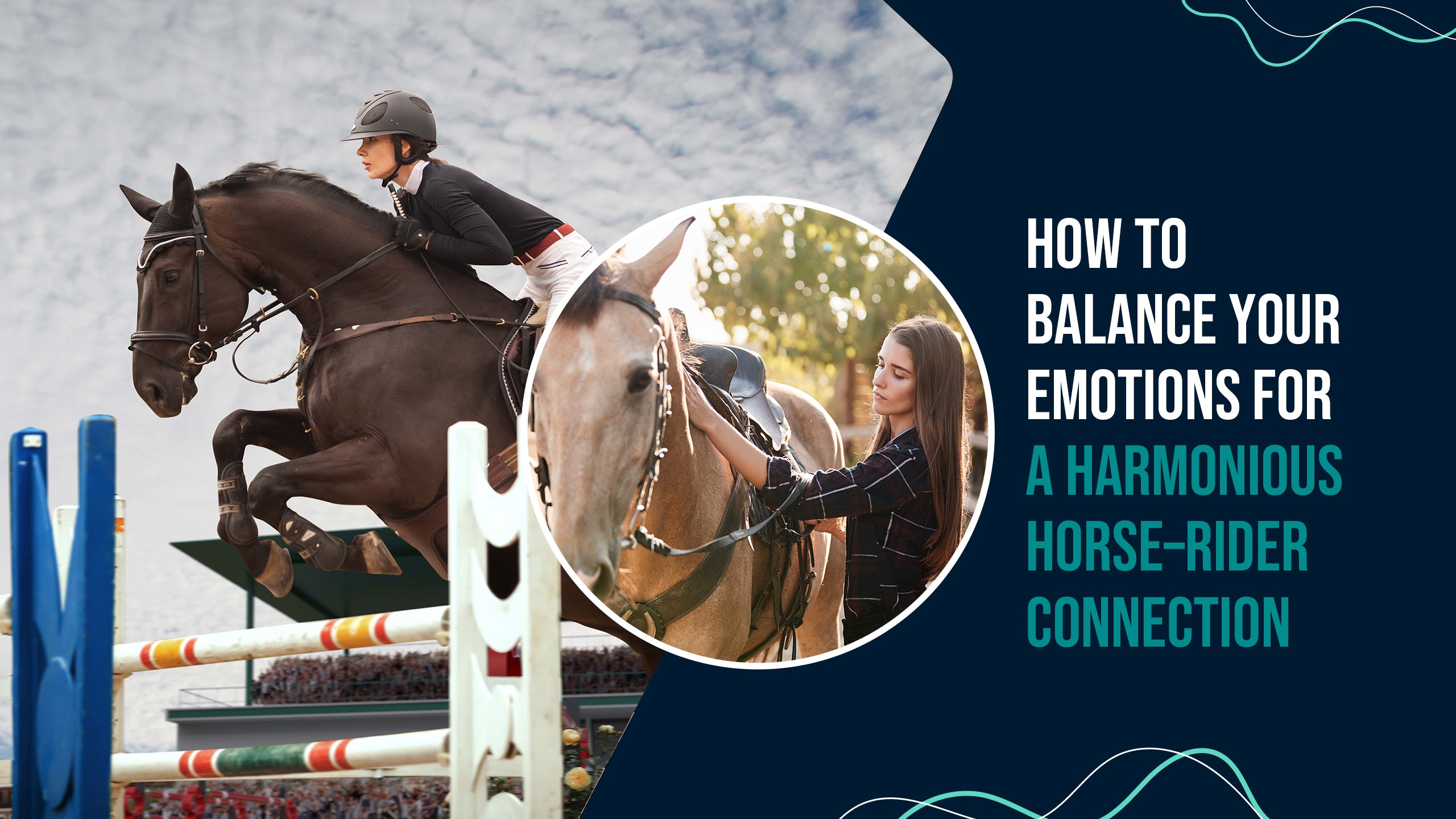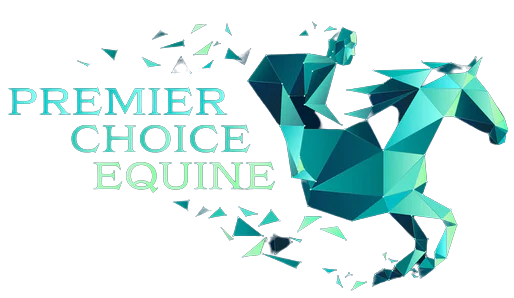
Horse riding is not just a physical activity; it is also a deeply emotional experience.
As a rider, you form a unique bond with your horse, and rely on them for trust, support, and companionship. However, navigating the world of horseback riding can be emotionally challenging. From the fear of falling off to the pressure of competition, you may find yourself grappling with a range of emotions. That's why mastering emotional balance is crucial.
In this blog, we delve into the significance of emotional equilibrium for riders. Discover the keys to managing emotions in the saddle, fostering a positive mindset, and cultivating a deeper, more rewarding connection with your horse.
Understanding the Emotional Challenges Faced by Equine Riders
Horse riding comes with its fair share of emotional challenges. One of the most common struggles riders face is fear and anxiety. The sheer size and power of horses can be intimidating, especially for beginners. The fear of falling off or getting injured can hinder a rider's progress and confidence. Additionally, the pressure to perform well in competitions or meet certain expectations can create stress and self-doubt.
Another emotional challenge riders often encounter is frustration. Horses, like humans, have their own personalities and moods. They may not always respond as expected, leading to frustration and even anger. It can be difficult for you to remain calm and patient when your horse is not cooperating or behaving as desired.
Moreover, riders may also experience a range of emotions such as joy, pride, and even sadness. The bond between a rider and their horse can be incredibly strong, and you may feel a deep sense of connection and fulfillment when riding. However, you may also experience moments of sadness or disappointment when faced with setbacks or challenges.
The Benefits of Emotional Balance in Horseback Riding
Mastering emotional balance is a game-changer for horse riders, offering a multitude of advantages.
- Enhanced Focus and Presence: Emotional balance enables riders to stay immersed in the present moment. This heightened awareness allows for a full engagement with your horse, fostering effective responsiveness to its needs. The result is an improved communication channel and a more cooperative, harmonious partnership.
- Fear and Anxiety Management: Emotional balance equips riders with the tools to confront and conquer fear and anxiety. By cultivating emotional resilience, you can gain the confidence to navigate your fears, transforming riding from a source of stress into one of empowerment and enjoyment.
- Improved Riding Abilities and Wellbeing: The benefits of emotional balance extend beyond the saddle. You may find an improvement in your overall wellbeing as emotional equilibrium positively influences your riding abilities, making each session a source of joy and fulfillment.
- Enhanced Decision-making: Emotional balance empowers riders to make sound decisions, even in high-pressure situations. Whether in competitions or challenging riding scenarios, the ability to think clearly and rationally becomes a crucial asset, influencing outcomes with every decisive moment.
Techniques for Achieving Emotional Balance While Riding
Achieving emotional balance while riding requires practice and dedication. Here are some techniques that can help you to find emotional equilibrium:
Building a Strong Bond with Your Horse
Cultivating a robust connection with your horse is paramount for emotional equilibrium. Beyond the saddle, invest quality time in activities such as grooming and groundwork exercises to foster trust and understanding. Building a strong bond extends beyond riding sessions, creating a foundation of security and confidence. This holistic approach to horse–human interaction not only enhances the overall relationship but also lays the groundwork for a more harmonious and enjoyable riding experience.
The Role of Mindfulness in Maintaining Emotional Balance
Mindfulness is a powerful tool for maintaining emotional balance while riding. By being fully present in the moment and aware of your thoughts and feelings, you can prevent distractions and negative emotions from taking control. Practice mindfulness exercises, such as deep breathing and body scanning, before and during your rides to cultivate a calm and focused state of mind.
Overcoming Fear and Anxiety in the Saddle
Fear and anxiety can be major obstacles for equine riders. To overcome these emotions, it is helpful to break down your fears into smaller, manageable steps. Gradually expose yourself to situations that trigger fear, such as riding in open spaces or jumping obstacles. Seek support from a qualified instructor or therapist who specializes in equestrian sports to guide you through the process.
Developing Resilience and Perseverance as an Equine Rider
Building emotional resilience and perseverance is crucial for equine riders. Riding is a journey filled with ups and downs, and setbacks are inevitable. Instead of letting failures discourage you, view them as opportunities for growth and learning. Foster a positive mindset by establishing achievable goals and acknowledging and celebrating small triumphs as you progress. Remember, success in riding is not solely determined by achievements but by the lessons learned and the progress made.
Seeking Professional Help for Emotional Support
While riders can practice various techniques to achieve emotional balance, seeking professional help is sometimes necessary. A qualified therapist or psychologist can provide valuable guidance and support in managing emotions, overcoming psychological barriers, and developing coping strategies specific to equine riding. They can help riders explore the root causes of emotional challenges and work towards long-term emotional wellbeing.
Horse riding instructors and coaches also play a vital role in supporting riders' emotional balance. They can provide encouragement, constructive feedback, and tailored training programs to help you build confidence and manage your emotions effectively. A skilled instructor understands the unique emotional challenges that riders face and can provide guidance and exercises to address them.
Conclusion
Emotional balance is a crucial aspect of equine riding that should not be overlooked. By mastering emotional balance, riders can enhance their connection with their horses, manage fear and anxiety, make better decisions, and enjoy a fulfilling riding experience. Through techniques such as building a strong bond with their horse, practicing mindfulness, overcoming fear, and seeking professional help, equine riders can embark on a journey of emotional growth and self-discovery. So, embrace emotional balance and unlock the true potential of your riding skills.
If you're an equine rider looking to master emotional balance and enhance your riding experience, start implementing these techniques today and visit Premier Choice Equine for more information on equine riding. Remember, emotional balance is a lifelong practice, so be patient with yourself and enjoy the journey!